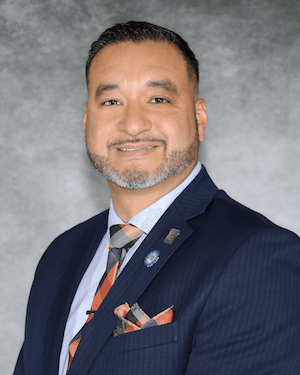Start With Education
One of the best ways to better serve the veteran community is by having agents pursue the Military Relocation Professional (MRP) certification, offered through the National Association of REALTORS®.
This program equips agents with the knowledge to help active-duty service members and veterans with their housing needs, especially when it comes to relocation and understanding military benefits. Agents who hold the MRP designation gain valuable insights into timelines, financing tools and the emotional aspects of military moves.
For veterans and their families, working with an agent who understands their lifestyle and benefits builds trust and ensures a smoother homebuying experience.
Master VA Loans and Financial Resources
The VA loan program remains one of the most valuable tools available to veterans. Backed by the U.S. Department of Veterans Affairs, it allows qualified buyers to purchase with little or no down payment and competitive interest rates. NAR reports that about 11% of new mortgages are VA loans. A significant knowledge gap remains, however, and providing education and awareness around VA loan benefits could help increase that number.
VA loans come with specific requirements. Brokers should make sure that agents are familiar with eligibility rules, service requirements and the appraisal process. This can be done by incorporating VA loan–specific trainings, making sure resources are up-to-date and even partnering with lenders who specialize in VA loans.
Additionally, you can help agents stay informed about state and local programs that support veterans through down payment assistance, property tax relief or housing grants. For example, the Orlando Regional REALTOR® Association’s (ORRA’s) Military Advisory Council (MAC) offers agents specialized education and certification opportunities, helping them better serve military and veteran clients. Programs like these often change, so staying connected with your local and state REALTOR® associations helps keep you and your agents informed and ready to share accurate information.
Advocate for Military Families in the Community
Supporting veterans goes beyond the transaction. Real estate professionals play a powerful role in shaping communities that honor and uplift military families.
Consider hosting workshops or information sessions for veterans interested in buying their first home. Partner with local lenders, housing counselors or veteran service organizations to share knowledge about the buying process and available benefits.
Advocacy also extends to the policy level. REALTOR® associations across the country advocate for fair housing policies, property rights and programs that make homeownership more accessible for veterans. ORRA’s MAC, for instance, supports veterans and military families by promoting policies that protect their property rights, expand access to VA loans and provide resources tailored to their specific needs.
At the national level, NAR supports federal legislation that better ensures service members and veterans are aware of their VA benefits and the VA Home Loan Guarantee program when purchasing a home, as well as what’s available to help them keep their home. One such policy that was recently passed into law is the VA Home Loan Reform Act, which helps veterans avoid foreclosure and stay in their homes.
In September, NAR also supported the VA’s decision to temporarily allow veterans to directly compensate real estate representatives when using VA home loans.
Build a Foundation of Trust
For veterans, buying a home isn’t just a financial milestone—it’s a step toward stability after years of service and mobility. Agents who approach these clients with empathy, education and preparation help find a house that can become their forever home.
When we take the time to understand the veteran experience, master the tools available and advocate for their needs, we strengthen our relationships with our veteran clients and our communities.













